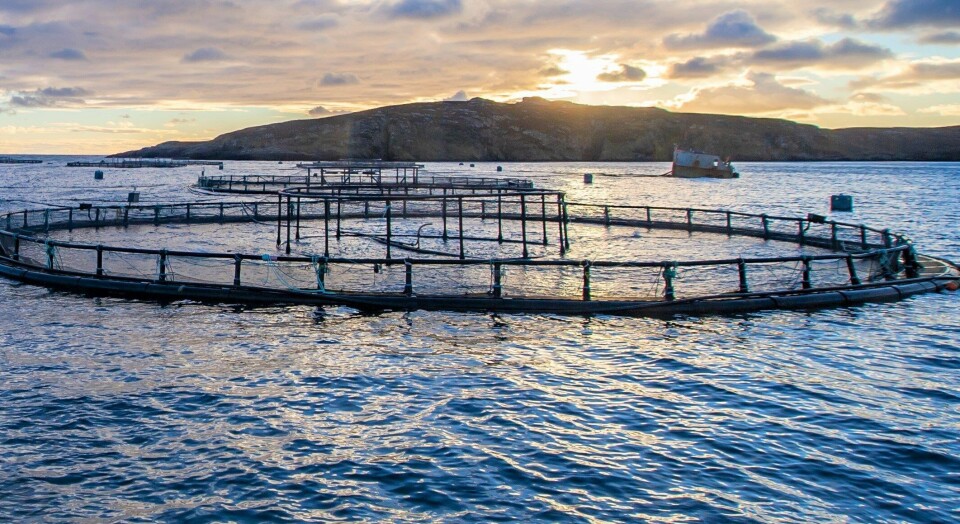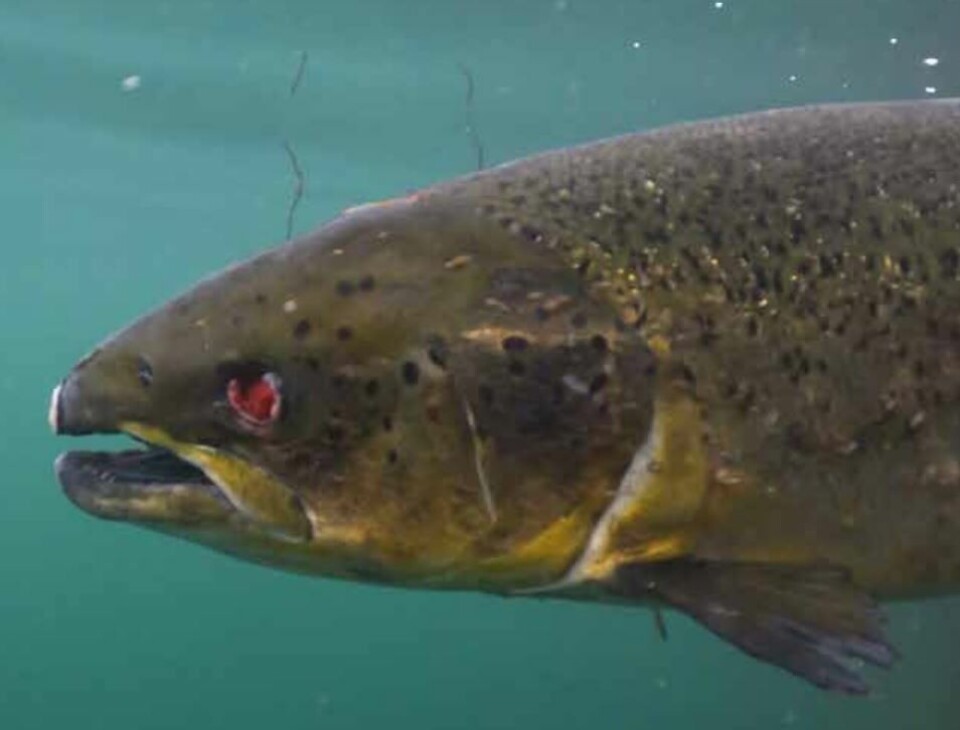
Attack on fish farming ‘wrong and misleading’
A highly critical report on Scottish salmon farming funded by Facebook billionaire Dustin Moskovitz is “wrong, inaccurate and misleading”, the industry said today.
The report has been authored by Compassion in World Farming (CIFW), a Surrey-based organisation that campaigns to “peacefully to end all factory farming practices”, and Edinburgh-based OneKind.
In the emotively written 44-page report, the organisations allege the industry is “rife with welfare issues” and demand an immediate moratorium on salmon farming expansion.

The report includes a photo of a salmon with a missing eye (see photo, right), another with lice damage and several sea lice attached to its head and another with a large, exposed wound on its back, all taken by a team of undercover investigators hired by CIWF to carry out an investigation between September and November last year. The cover of the report features a drawing of a salmon with a combination of all these injuries.
Welfare accrediation
Tavish Scott, chief executive of the Scottish Salmon Producers’ Organisation (SSPO), said: “There are key parts of this report which are wrong, inaccurate and misleading - claims we would have pointed out to CIWF, had they approached anybody in the Scottish salmon farming sector before publishing it.
“Salmon farming one of the country’s greatest environmental and economic success stories. The Scottish salmon sector has built itself up from a small crofting side-line to the UK’s biggest food export in just 50 years, in doing so it has created thousands of well-paid jobs in some of Scotland’s most fragile rural areas and is producing a protein with one of the lowest carbon footprints around.
“We are extremely proud of the support given to us by consumers, global fish-welfare accreditation bodies and governments - all of whom appreciate the healthy, nutritious and sustainable food we produce.”
High standards
Ronnie Soutar, head of veterinary services at Scotland’s third-largest salmon farmer, Scottish Sea Farms, and a long-standing fish vet, said: “No one wants to see any fish potentially suffering but thankfully, those occasions are rare. By selectively publicising those very few pictures, CIWF are being hugely misleading. Those pictures do not reflect my experience of the extraordinarily high standards Scotland’s fish farmers are setting.”
The report published today makes a number of allegations, including that as of October last year a landfill site in Scotland was being illegally used to bury dead fish.
CIWF also makes apparently contradictory claims that escaped farmed salmon are so poorly adapted to life in the wild that they are likely to suffer, but that these fish are still able to interbreed with wild salmon and weaken the wild population’s fitness.
Sea lice
It further claims that sea lice are out of control, and quotes selected figures from Salmon and Trout Conservation Scotland, the angling body most hostile to salmon farming.
It also states that “salmon farms increase the spread of sea lice and disease to wild populations locally” but doesn’t provide evidence.
“There is a lack of detailed research in the UK waters, but studies conducted in British Columbia show infection rates around fish farms as being 73 times higher than in areas without fish farms (Martin Krkošek, 2005),” states the report.
‘Correlative’ findings
But that figure, too, is uconvincing. It is taken from work Dr Krkošek did for the David Suzuki Foundation which was challenged by investigative journalist Vivian Krause. She found that none of the sea lice research funded by the David Suzuki Foundation actually measured sea lice levels at salmon farm accused of being the source of an increased lice population.
“It’s not possible to make sound conclusions about the transmission of anything from point ‘A’ to point ‘B’ if you don't measure point ‘A’ (the salmon farm),” wrote Krause. “Secondly, during part of the research, there were no fish at the farm.”
In testimony to a public hearing of the British Columbia government, Krkosek, admitted that his findings were “all correlative”. A correlation does not show causality.
Fate of cleaner fish
CIWF also questions the fate of cleaner fish used to eat lice in salmon pens when the farming cycle ends.
“RSPCA standards require that cleaner fish are slaughtered humanely, and states this is usually a percussive blow for bigger wrasse or an overdose of anaesthetic for smaller fish or lumpfish (RSPCA, 2021). It is unknown what method of slaughter (if at all) is used for cleaner fish from farms not covered by RSPCA Assured,” states the report.
Open Philanthropy
The CIWF report is funded by the San Francisco-based Open Philanthropy Project, primarily funded by Cari Tuna and her husband Dustin Moskovitz, a co-founder of Facebook and a multi-billionaire.
In 2019 the Project approved two grants totalling £1.76 million over two years to CIWF to support work on fish welfare and efforts to end the use of cages and crates for all farmed animal species in the UK and Europe. The money was for staffing needs, marketing, social media, advocacy work, investigations, and technical and operational costs.
CIFW was previously given £805,000 by the Project in 2017 to advance fish welfare in Europe.























































